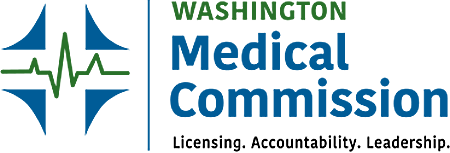Addressing Vaccine Hesitancy in Rural Communities: Part Two
This webinar took place on November 13, 2024 and will expire on November 12, 2025
Webinar Slides
Webinar Recording
CME Evaluation
This two-part workshop introduced rural healthcare providers to motivational interviewing (MI) and Getting to the Heart and Mind of the Matter Toolkit, which helps patients choose trustworthy sources of information and respond to brain-friendly promotional messages. These techniques can help providers have impactful vaccine interactions with patients in rural communities. The webinar will be recorded and continuing education is available for physicians, physician assistants (PA), medical assistants, pharmacists and nurses.
Educational Objectives
Upon completion of this educational activity, participants should be able to:
- Illustrate strategies to evoke and reinforce “change talk” during brief interactions with patients;
- Employ MI skills and strategies during patient interactions, including how to use MI to provide evidence-based information about vaccines and science media literacy;
- Evaluate feedback from other participants on practicing MI skills;
- Create a plan for how they will use the Getting to the Heart and Mind of the Matter Toolkit to assist them in their interactions with patients and health promotion efforts.
Target Audience
This activity is designed to educate commission members, practitioners, medical regulatory staff, and the public.
Speaker Biographies
|
Dr. Anya Sheftel Ph.D. Dr. Sheftel is a licensed psychologist and a Research Assistant Professor of Special Education at Washington State University (WSU). She has 19 years of experience of using motivational interviewing (MI) with youth and adults. Additionally, as member of the international Motivational Interviewing Network of Trainers, Dr. Sheftel has led national and international MI workshops and provided coaching to professionals working in medical, mental health, rehabilitation, and education settings. Currently, she is a Co-Investigator on the Getting to the Heart and Mind of the Matter: Evaluation of Extension Professionals’ Vaccination Education Implementation EXCITE Foundation Project. Additionally, in her role as an Associated Member of WSU’s Research and Innovation in Special Education (WSU RISE) Center, she has served as Principle and Co-Investigator on projects focused on using MI to support career development and self-determination for youth and young adults with disabilities. |
|
|
Dr. Erica Weintraub Austin Ph.D. Erica Weintraub Austin (Ph.D., Stanford University) is dedicated to collaborative efforts that help people use media to make decisions best for themselves and to help their communities. She is a professor and the founding director of the Edward R. Murrow Center for Media and Health Promotion Research in the Edward R. Murrow College of Communication at Washington State University. A fellow in the International Communication Association, she is ranked among the World’s Top 2% Scientists for “Lifetime Impact” in Communication and Media Studies, Public Health according to Elsevier’s Data Repository. Austin focuses her research on how strengthening media literacy can facilitate healthier decision making and engagement in health, science and civics among children, adolescents, and adults. |
Continuing Medical Education
Accreditation Statement
This activity has been planned and implemented in accordance with the accreditation requirements and policies of the Accreditation Council for Continuing Medical Education (ACCME) through the joint providership of the Federation of State Medical Boards, the Washington Medical Commission, and the Washington State Department of Health. The Federation of State Medical Boards is accredited by the ACCME to provide continuing medical education for physicians.
Credit Designation Statement
The Federation of State Medical Boards designates this live activity for a maximum of 1.0 AMA PRA Category 1 Credit™. Physicians should claim only the credit commensurate with the extent of their participation in the activity.
Course Director
Gina Fino, MD
Washington Medical Commission
Commercial Support
This learning activity is not funded by any commercial entity.
Disclosure Declaration
As an organization accredited by the ACCME, the Federation of State Medical Boards (FSMB) requires that the content of CME activities and related materials provide balance, independence, objectivity, and scientific rigor. All faculty, planners, and others in a position to control continuing medical education content participating in an accredited continuing education activity are required to disclose all financial relationships with ineligible companies. Ineligible companies are organizations whose primary business is producing, marketing, selling, re-selling, or distributing healthcare products used by or on patients. Faculty (authors, presenters, speakers and planners) are encouraged to provide a balanced view of therapeutic options by utilizing either generic names or other options available when utilizing trade names to ensure impartiality.
Faculty members are asked to disclose all financial relationships they have had in the past 24 months with ineligible companies regardless of the potential relevance of each relationship to the education and of the amount. The FSMB has implemented a mechanism to identify and resolve all conflicts of interest prior to the activity. The intent of this policy is to identify potential conflicts of interest so participants can form their own judgments with full disclosure of the facts. Participants will be asked to evaluate whether the speaker’s outside interests reflect a possible bias in the planning or presentation of the activity. The speakers, course director, and planners at the Federation of State Medical Boards, have nothing to disclose
Disclosure of Unlabeled Uses
This educational activity may contain discussion of published and/or investigational uses of agents that are not approved by the U.S. Food and Drug Administration. For additional information about approved uses, including approved indications, contraindications, and warnings, please refer to the prescribing information for each product, or consult the Physicians’ Desk Reference.
Faculty and Staff Disclosures
No speaker or persons in control of content reported intent to reference unlabeled/unapproved uses of drugs or products.



